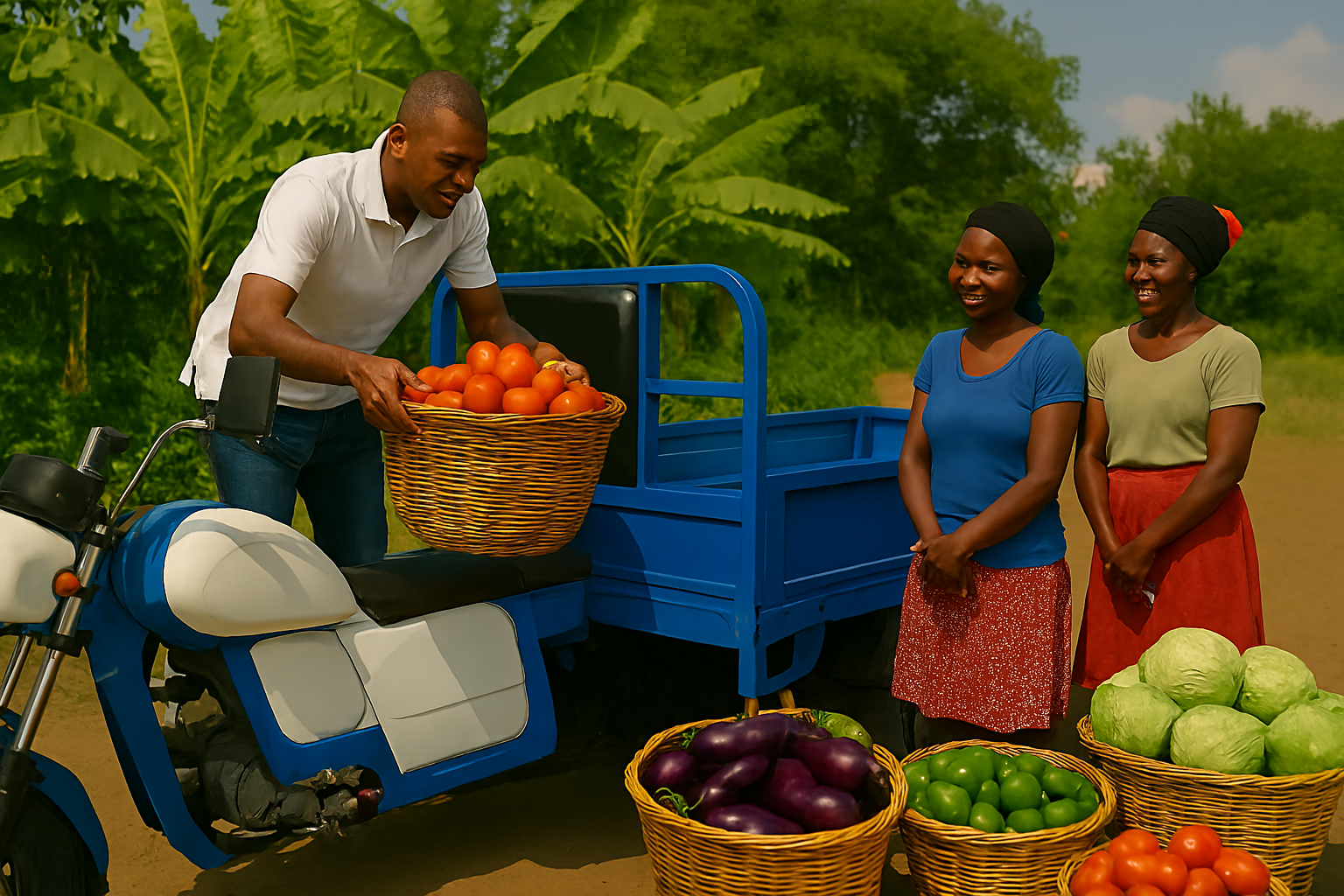Konbit Lakay is not just an agricultural initiative—it’s a transformative movement aimed at revitalizing Haiti’s rural economy through land activation, cooperative enterprise, and agro-industrial development. At its core, the program seeks to mobilize 10,000 carreaux of farmland, subdivided into modular parcels of 1/5 carreau (~1,290 m²), each integrated into a cooperative system with direct access to the Devlopman Mache Lakay (DML) distribution network. By weaving together agriculture, fishing, and food processing, Konbit Lakay promotes food sovereignty, rural employment, and territorial stability.
The strategy begins with a national land audit to identify underutilized or disputed plots. These lands are then recovered through fair purchase or temporary expropriation and converted into productive agricultural zones. Strict zoning regulations are applied to prevent urban sprawl and protect the integrity of farming communities. This foundational step ensures that land is not only available but also governed by principles that prioritize long-term sustainability and rural dignity.
At the heart of Konbit Lakay lies a cooperative model built around modular parcels. These units are prioritized for trained youth, women, and rural residents, with private landowners encouraged to lease their property for redistribution. Specialized cooperatives focus on greenhouse agriculture, livestock (including cattle, goats, poultry, and aquaculture), seed production, and agro-processing. This structure fosters continuous production, diversified income streams, and localized value chains that strengthen community resilience.
Fishing and aquaculture are also central to the program’s vision. Coastal and inland fishing cooperatives are equipped with modern boats, safety training, and gear, while aquaculture is integrated into the cooperative model to expand economic opportunities. These efforts not only boost food production but also reinforce Haiti’s maritime identity and empower coastal communities with sustainable livelihoods.
The anticipated impact is profound: increased local food production, reduced imports, and the creation of thousands of rural jobs. More than 200,000 people will be able to remain in their communities, supported by inclusive territorial development and democratized land access. For the diaspora, Konbit Lakay offers tangible investment pathways that reconnect Haitians abroad with the land and future of their homeland. As the program unfolds in three phases—from legal groundwork to cooperative launch and national agro-industrial expansion—it charts a bold course toward economic justice, food independence, and a sovereign Haiti rooted in its rural strength.





